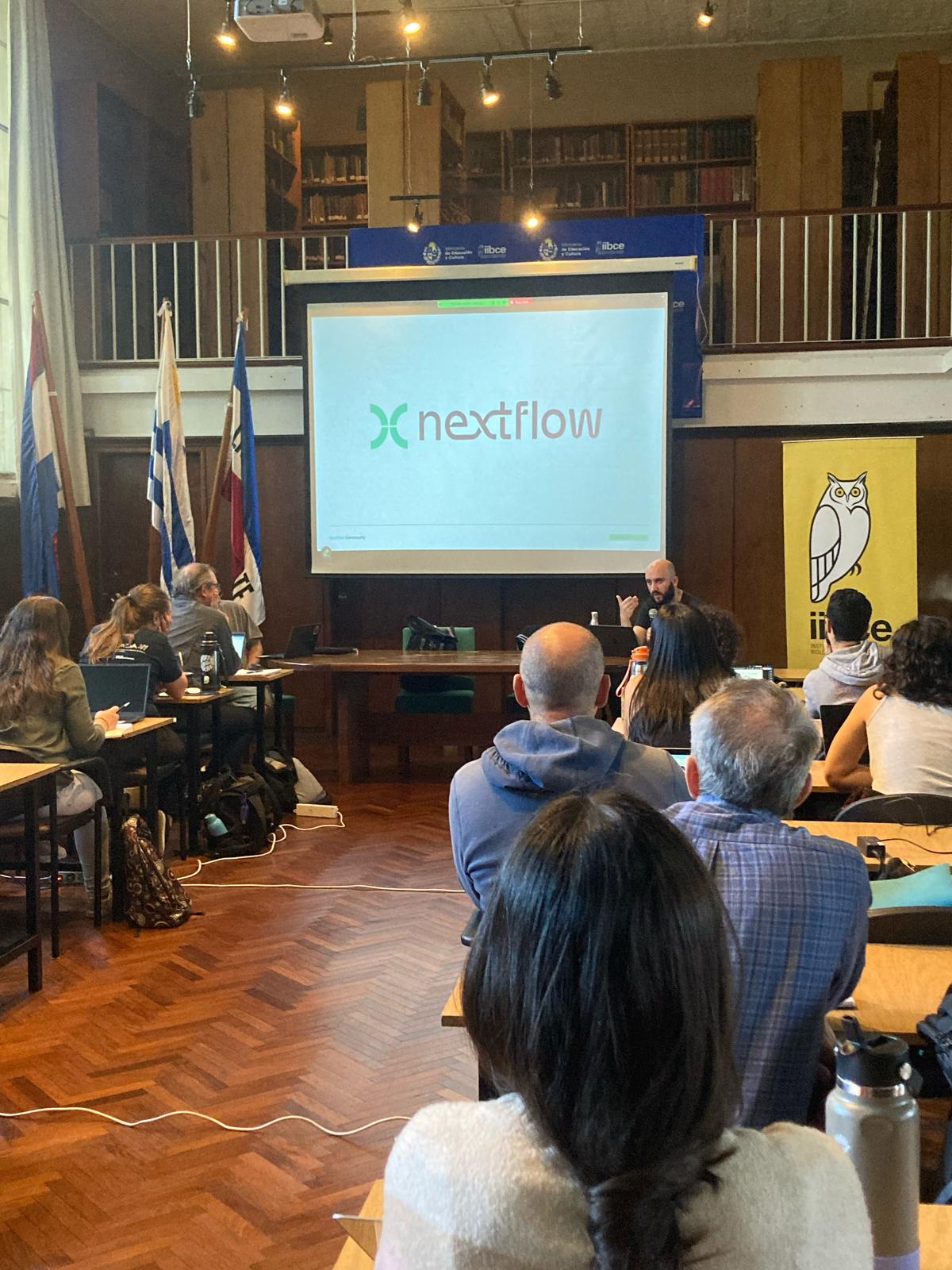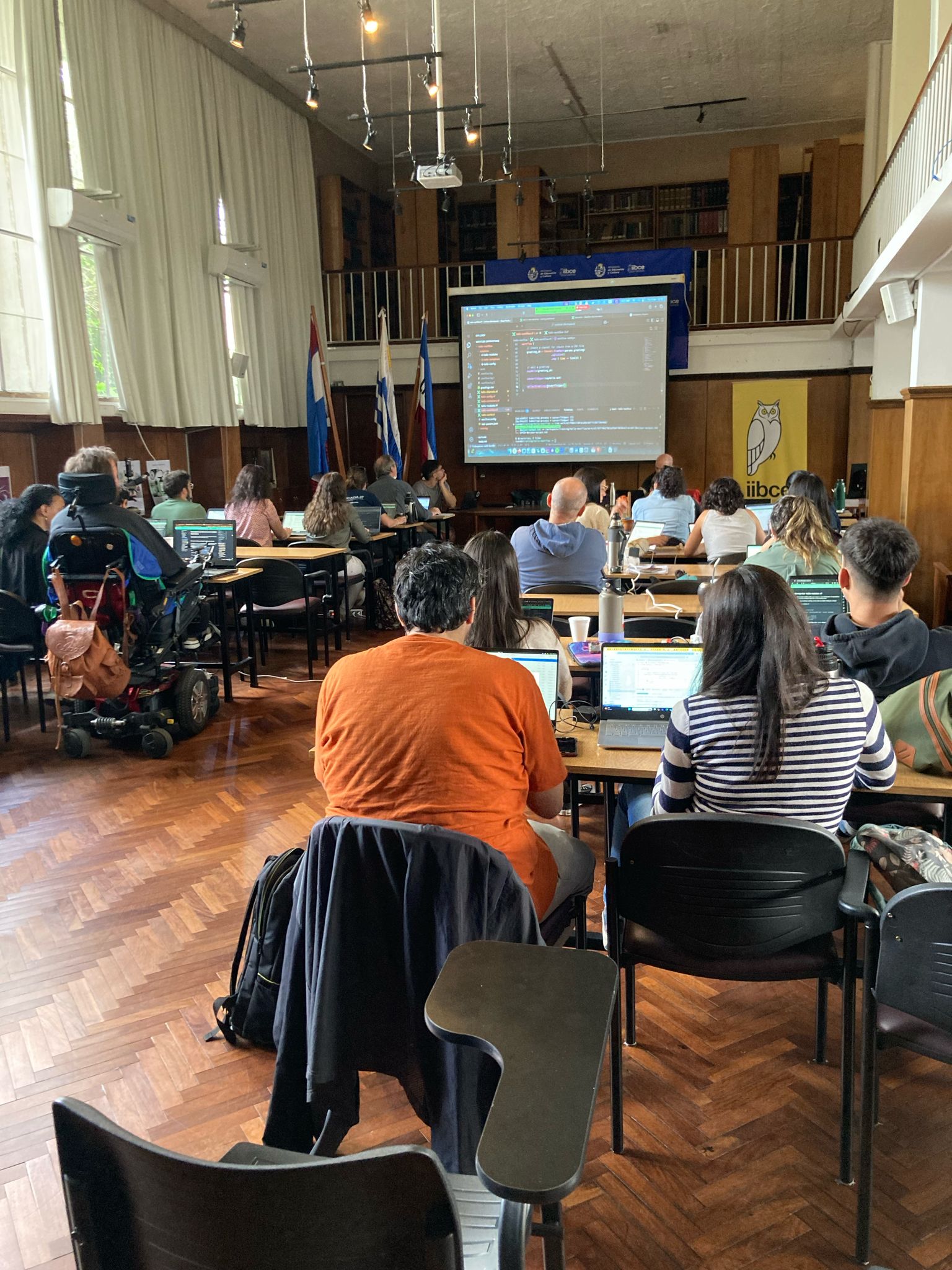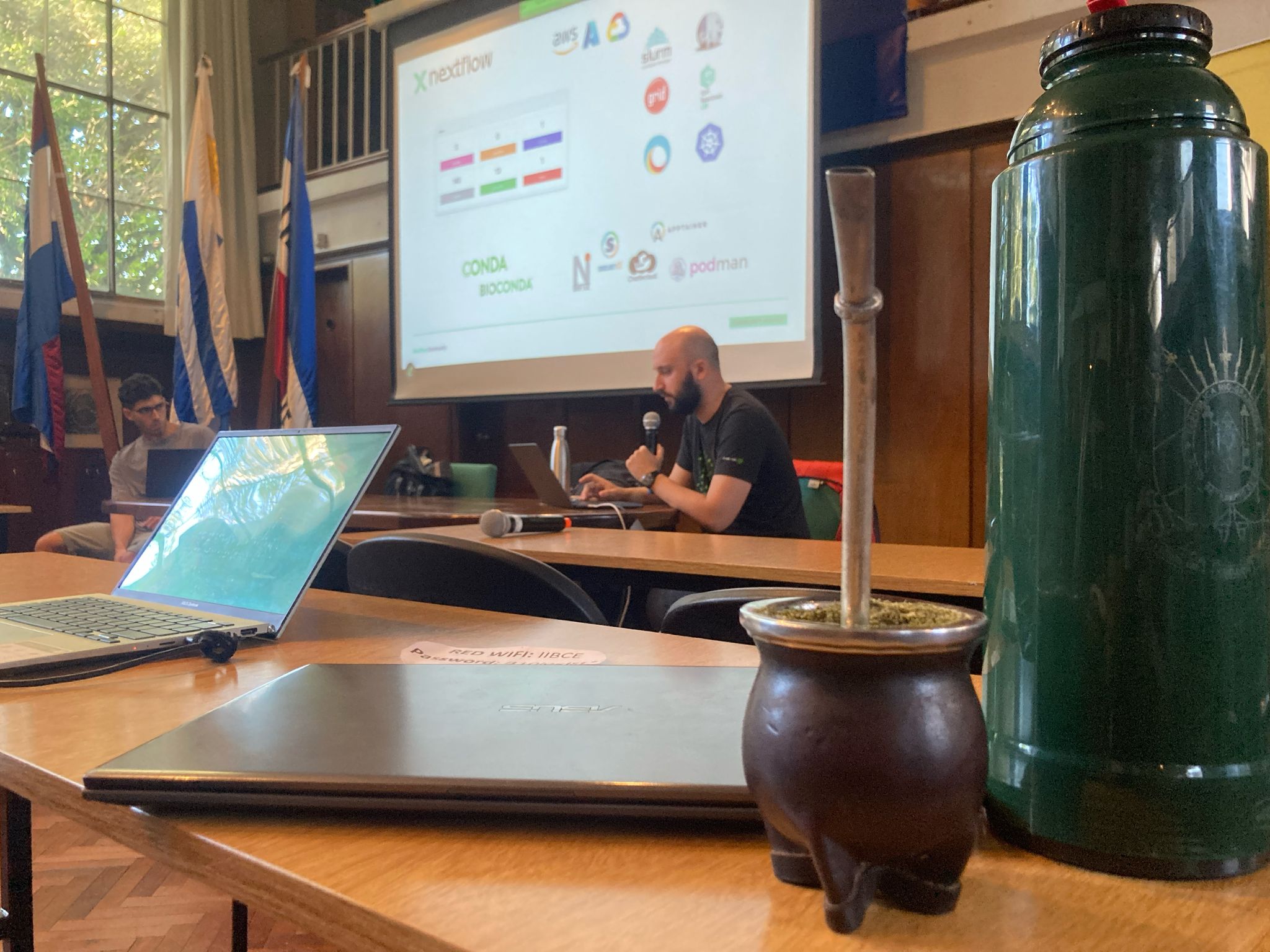Introduction to Nextflow workshop in Uruguay
The Regional Student Group Uruguay (RSG-Uruguay) is a non-profit academic group intended to gather young Uruguayan researchers among the bioinformatics and computational biology fields. They have been organizing various local training events and meetings. In this context I offer to host a Nextflow introductory workshop in April 2025 as I was going to be in the country on holiday.
We decided to use the Hello Nextflow course for the workshop. This one is very well suited for people who are not familiar with workflow management systems. The plan was for me to go over the lessons, stopping to explain and answer any questions. Then, the participants would work through the same lessons themselves.
Participants used the provided GitHub Codespaces. They were asked to create GitHub accounts if they didn’t have one beforehand.
Participants
There were more than 25 participants from various research institutes and backgrounds.
Most of the participants had programming experience with bash, python and R being the most common programming languages.
Workshop structure
The workshop was held at the Clemente Estable Biological Research Institute (IIBCE) from 9 am to 2 pm. Each part of the course took roughly one hour, with half an hour of the demonstration and half and hour of participants going over the material. This worked really well for the first 4 parts, participants were able to follow the materials on their own in the allocated time. The audience had many questions about software management, as many of them had experience with conda and were interested in using it with Nextflow; there was also interest in containers technology. Based on this feedback we decided to squash the last 2 parts into a more comprehensive demonstration, and let participants work thought the last section of the training after the workshop.
Some pictures from the workshop.



Conclusion
It was a great experience, with loads of interest and questions about Nextflow and how to best use it. We are planning on having a more advanced workshop in the future, and even possibly to join the next nf-core hackathon 🤞.
A special thanks to Martín Rivara, Matías Giménez, and Joaquín Pereira for their help with the organization and during the workshop.